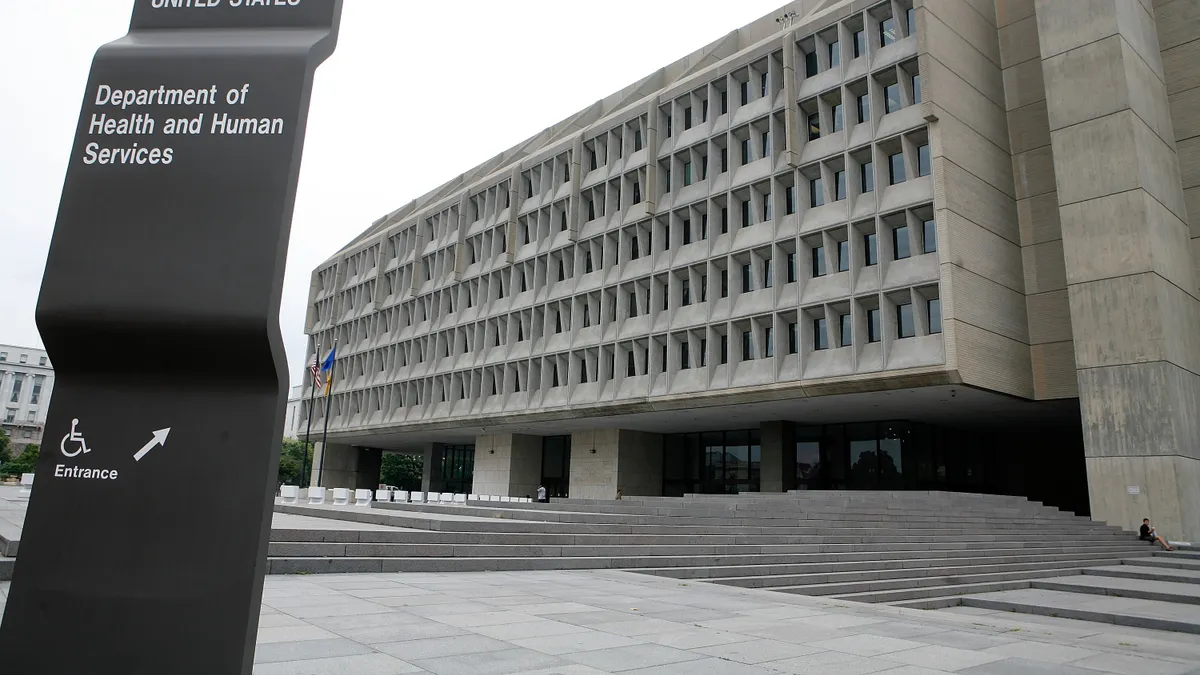Dive Brief:
- The Department of Health and Human Services disclosed Thursday it's launched a pilot program to surveil coronavirus spread in nursing homes and similar facilities using rapid molecular test kits from Cue Health. Specifically, the tests will be used for "quick confirmatory testing of positives and suspicious negatives in high-concern populations and congregate care settings," Cue outlined.
- Unlike lab-based molecular tests, which can take two to three days for turnaround, Cue's rapid molecular point-of-care test generates results in about 20 minutes. News of an initial rollout to five states follows a $481 million contract from HHS and the Department of Defense in mid-October to increase U.S. production to 100,000 test kits per day come March 2021. Cue received an emergency use authorization for its test in June.
- The HHS effort builds on prior distributions of rapid antigen tests from BD and Quidel to about 14,000 nursing homes nationwide. Abbott has a $760 million HHS contract to deliver 150 million of its tests to schools and vulnerable U.S. populations. Rapid antigen tests are cheap and can provide results in minutes, but they also tend to be less accurate than molecular tests and can have false positives.
Dive Insight:
The fruits of the San Diego biotech’s decade in business appear to be coming to bear as rapid, point-of-care diagnostics see unprecedented growth during the year of coronavirus.
The recent $481 million from the U.S. government builds on investments from Johnson & Johnson and others. Cue closed $45 million in a Series B round in 2018 ahead of the coronavirus crisis, and $100 million in a Series C this year in the thick of the pandemic with the value proposition of rapid, POC testing playing out in real time.
Those latest funds were meant to help scale and launch the test to a variety of healthcare settings, although the company said it hoped that with additional FDA authorizations it could be used in workplaces, schools and at home. The test gained new attention when the National Basketball Association opted to lean on it to weed out any infections in the "bubble" it established to safely carry out its 2020 season.
The federal rollout of Cue products began on Nov. 9 to Alaska, Florida, Louisiana, New Jersey and Texas. During its first week, HHS distributed 27,000 test kits and 600 cartridge readers. The HHS-DOD contract stipulates Cue will ultimately provide 6 million tests and 30,000 readers to the U.S. government. In starting out with a select group of states, HHS said it will assess how well the Cue test can be "adapted in institutions and communities."
HHS' Cue effort is less expansive than the Abbott initiative. Abbott reported its product has shown sensitivity of 97.1% and 98.5%. By contrast, Cue claims its product delivers sensitivity of 98.7% and specificity of 96.7%.
HHS reiterated in its announcement Thursday the limitations of rapid tests and the need for followup, recommending that institutions verify test results with molecular tests "when the situation warrants.”











